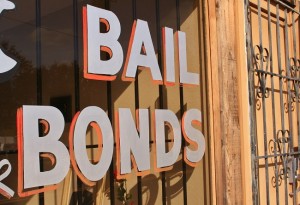A bail bond is a type of surety provided by a bondsman in order to give the defendant in a case freedom. Securing a bail bond reduces the stress associated with going to court, and allows the defendant to prepare more adequately for their case hearings. It is important to note that a bondsman is in the business of providing bail bonds to defendants strictly for profit reasons.
The Real Deal on Bail Bonds
A defendant reaches out to a bondsman and pays 10 percent of the total bail amount. The bondsman then gives the bond to the court. If the defendant goes to all court dates, then the bail will be ended. However, one thing to note is that the bondsman keeps the original 10 percent. If the defendant skips court dates, then the judge can issue a warrant for their arrest and can demand for the full bail amount. At this time, the bondsman will do everything within their power to bring the defendant to court. They do this to avoid having to pay the entire bail amount to the court.
How a Bondsman Decides to Give Bail
A bail bonds agent looks at multiple factors when planning to issue bail for a defendant. Factors that they consider are similar to those that the judge used to determine the bail amount. These include the likelihood of the defendant making scheduled court dates, the magnitude of the case, and whether the defendant is a flight risk. Defendants who have cosigners are more likely to have their bail application approved. The cosigners promise to pay for the entire bail amount in the event that that defendant goes away permanently.
Reaching Out to a Bondsman
Bondsmen are very busy people, and thus one should be ready with information prior to calling them. It is good to have character references, credit card numbers, bank account numbers, previous job histories, and all information that is pertinent in deciding to issue bail. If the defendant is in jail, then adequate preparing is essential, especially because of the limited time phone time in correctional facilities.
If the case drags on for more than a year, then the bondsman charges an additional 10 percent of the total bail for each year that it is active. This is why when asking for bail, the defendant should bargain with the bondsman to charge the lowest interest rate as possible. If the bail amount set by the courts is very large, then bondsmen may be willing to automatically lower the interest to 8 percent, especially if the defendant has a lawyer or is represented by a union.
Prior to signing a contract, the defendant should check whether the bondsman is licensed in the state where they operate. If the bondsman’s paperwork does not show any license information, then the defendant should ask to see it before doing any business with them. It may seem rude but it is the common sense thing to do, especially when one considers that the contract has a clause that any property pledged can be seized. Dealing with a licensed professional cannot be emphasized enough and asking questions ensures that both parties are on the same page.
This article was contributed on behalf of EZ Bail Bonds, your number one choice when looking for bail bonds in Texas. Check out their website today and see how they can help you!







